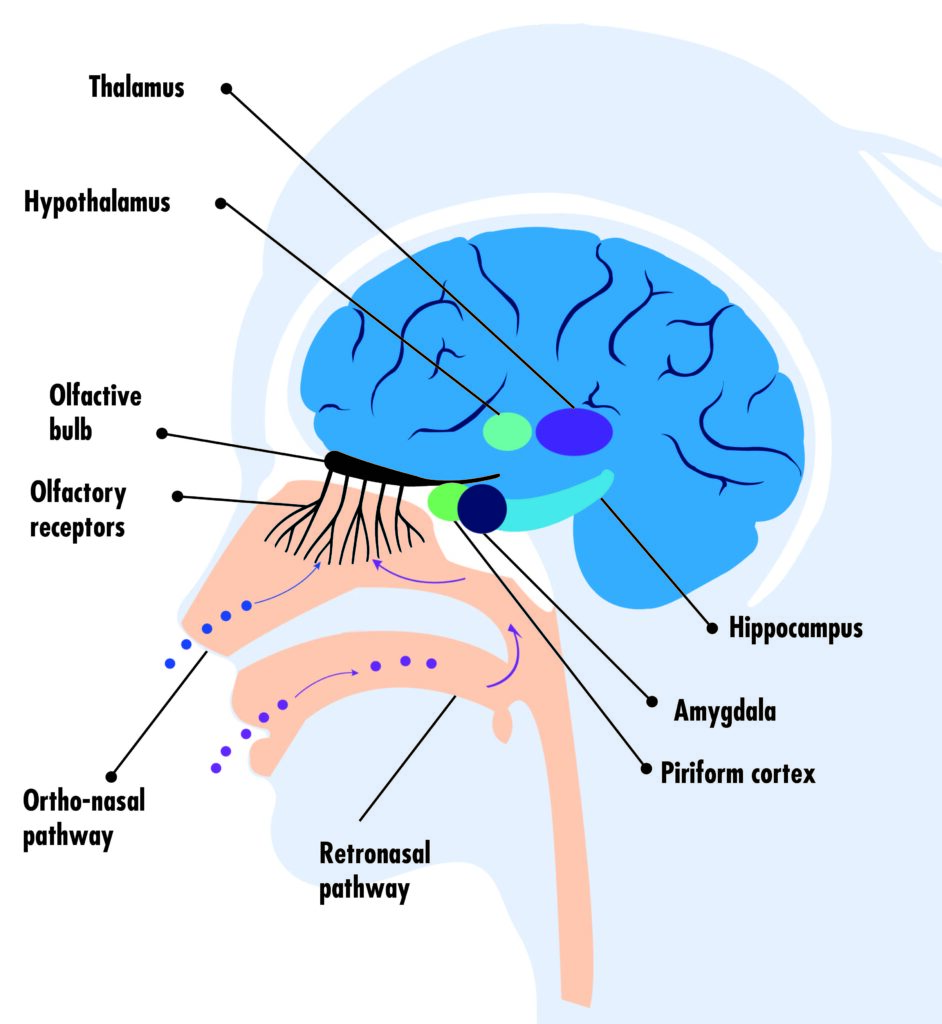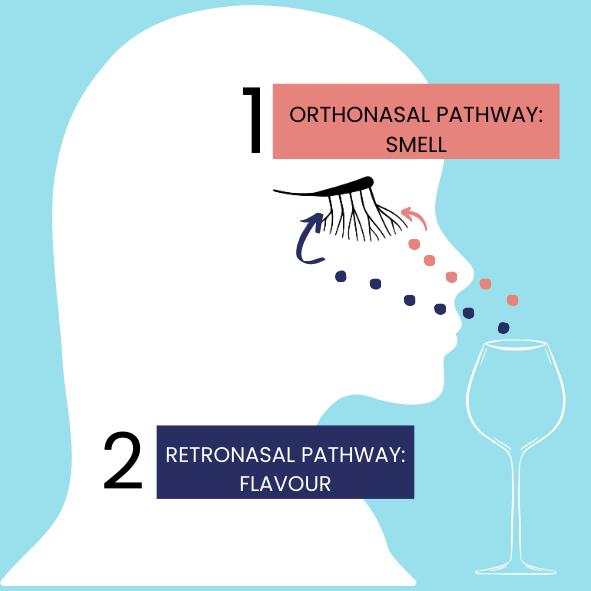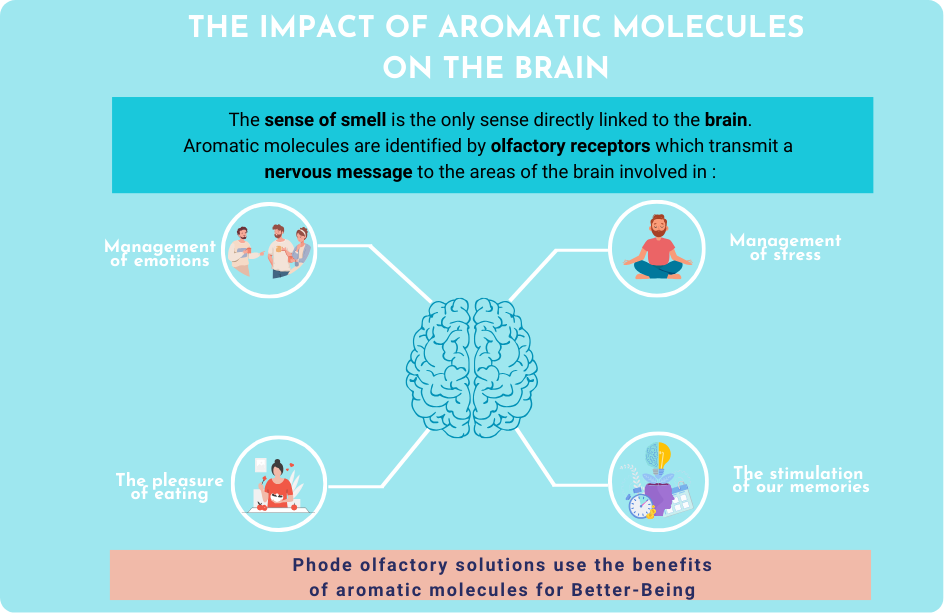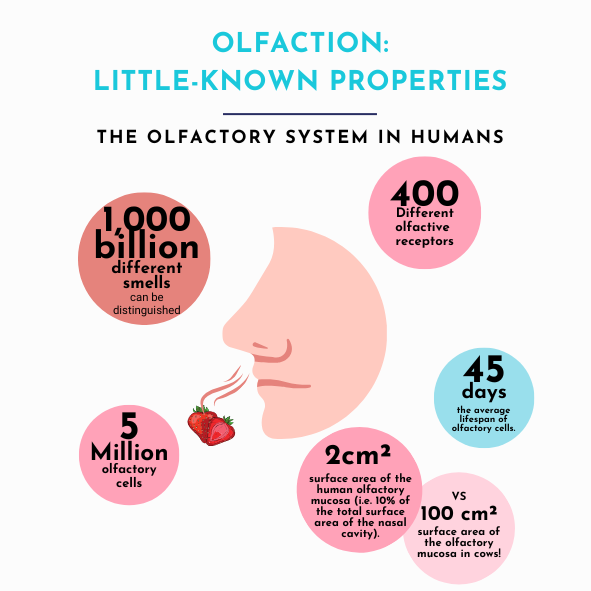More than just a sense, olfaction is a science
Over 25 years of research into the impact of olfactory molecules on the brain have enabled us to demonstrate how olfaction can positively influence the daily lives of living beings. With the aim of harnessing the benefits of olfactory molecules for living beings, Phodé has developed natural sensory formulations that act on the brain and trigger behavioural and physiological responses.

Smell: a sense with little-known properties
Smell is the only sensory system able to evoke memories and emotions. Why?
It all lies in the mechanism of odour recognition.
Flavour molecules are captured by olfactory receptors. In the brain, the olfactory bulb receives the nerve signal created by the olfactory receptor cells and then draws up a chemical identity card for the odour particle.
This identity card is sent to two areas of the brain involved in emotions and memory: the hippocampus and the amygdala.
- The amygdala is responsible for managing emotions, both pleasant and unpleasant.
- The hippocampus plays a role in long-term memory and the recall of memories.

Did you know ?

There are two distinct mechanisms involved in identifying odours. The most common is the orthonasal pathway.
The second, less well known, is the retronasal pathway. In this case, the flavour molecules pass through the mouth and up to the olfactory epithelium. This mechanism is often confused with taste perception.
A scientific approach focused on Better-being
In our products, we combine molecules that aim to improve Better-being in humans and animals by triggering positive emotions and activating the pleasure and reward centres of the brain.










